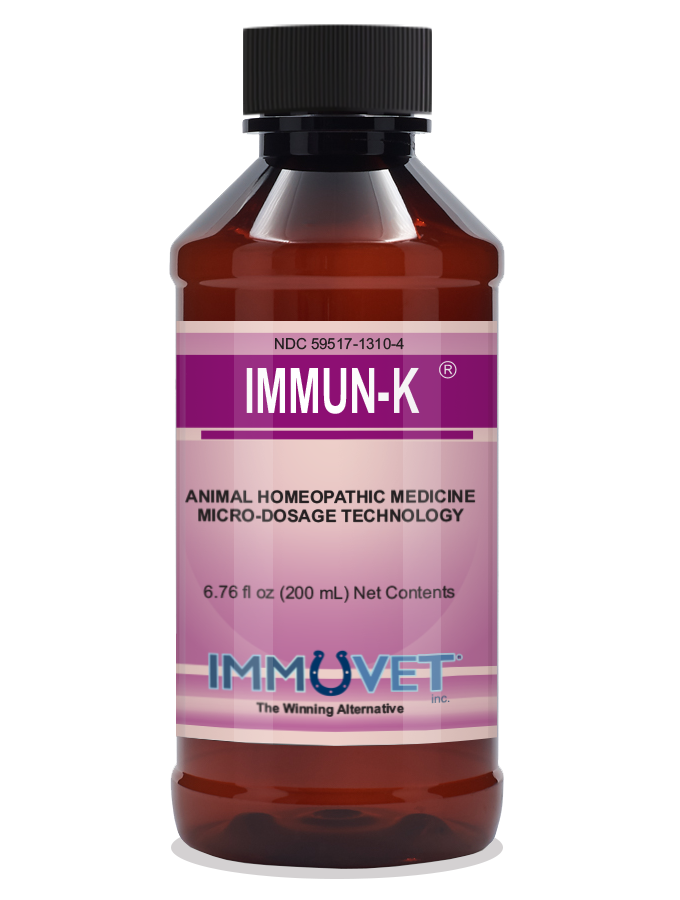What affects the immune system?
The immune system is designed to protect the body from invading pathogens and is extremely complex. When everything is functioning in synchrony, the system works well. If a horse is malnourished, the immune system and cell production will be impacted negatively. Even a well-fed horse on a diet that doesn’t contain the vital micro- and macro-minerals they need can be at risk of suppressing their immune system. The micro-minerals the horse needs to support their immune system include zinc, copper, cobalt, selenium, and manganese, while the macro-minerals include calcium, phosphorus, and magnesium. Young and old age can affect the immune system as well. In very young horses, the immune system is in a developmental stage. In old horses, its capabilities are diminished as part of the aging process. The problem is that many things can compromise the immune system, increasing the risk of developing a disease.
What weakens the body and immune system?
A horse’s body is constantly under constant attack. There are many diseases and viruses that affect horses: eastern and western encephalomyelitis, tetanus, rhinopneumonitis, influenza, strangles, rabies, Potomac horse fever (PHF) and West Nile virus, just to name a few. Parasites are a natural part of life for grazing animals and attack the horse’s body. Just like pathogens, several types of worms can infect a horse year-round. The energy spent fighting off infections can deplete overall nutrition and weaken the immune system. Serious conditions can develop if a horse’s immune system is not properly maintained. Viruses, bacteria, and parasites can take a toll on a horse’s health. Also, the recovery process can not only be long and time-consuming, but it can also be a very expensive prospect.
What are some ways to keep a horse healthy?
Many things need to be taken into account when keeping a horse healthy. Most importantly, a healthy immune system starts with receiving the necessary vaccinations. Most horse owners will give horses the standard spring shots, but that does not protect them from all the different diseases and infections they can get. It’s important to consider what the horse is likely to be exposed to and vaccinate accordingly. Keeping a horse’s hooves clean is the best way to prevent thrush from developing. A horse’s hooves should be trimmed by a farrier every 6-7 weeks. Parasite control is very important in maintaining your horse’s health and prevent intestinal damage. A regular worming schedule that uses the three main types of worming chemicals is key to a healthy horse and strong immune system. Flies are not only a nuisance but can carry diseases. Keeping flies at bay is an ongoing process with horses. There are several types of fly control products to consider, including specified feed, natural repellents, chemical repellents, and protective masks. Feeding a consistent and balanced diet will help improve the horse’s immune system. The best foods to feed a horse are quality grains and hay. Upsets to a horse’s digestive system can increase the chance of developing infections. Regular exercise keeps blood flowing properly and the immune system healthy. Be sure to exercise the horse regularly, especially if it is stalled. Good grooming stimulates blood circulation and can help find sore spots. Early detection of sore spots can help prevent costly infections. A regular schedule to have a horse’s teeth floated is key to a horse’s proper eating habits and nutrition. When considering the health of the immune system, it’s important to consider the horse’s intake of vitamins and minerals, fatty acids, hoof nutrition, digestion, muscle support, and cardiovascular support.
References
Building Horses Immune System. KV Supply, www.kvsupply.com/KVVet/assets/html/BuildingHorsesImmuneSystem.asp.
Immuvet® Products are manufactured by Amino Cell Inc.


